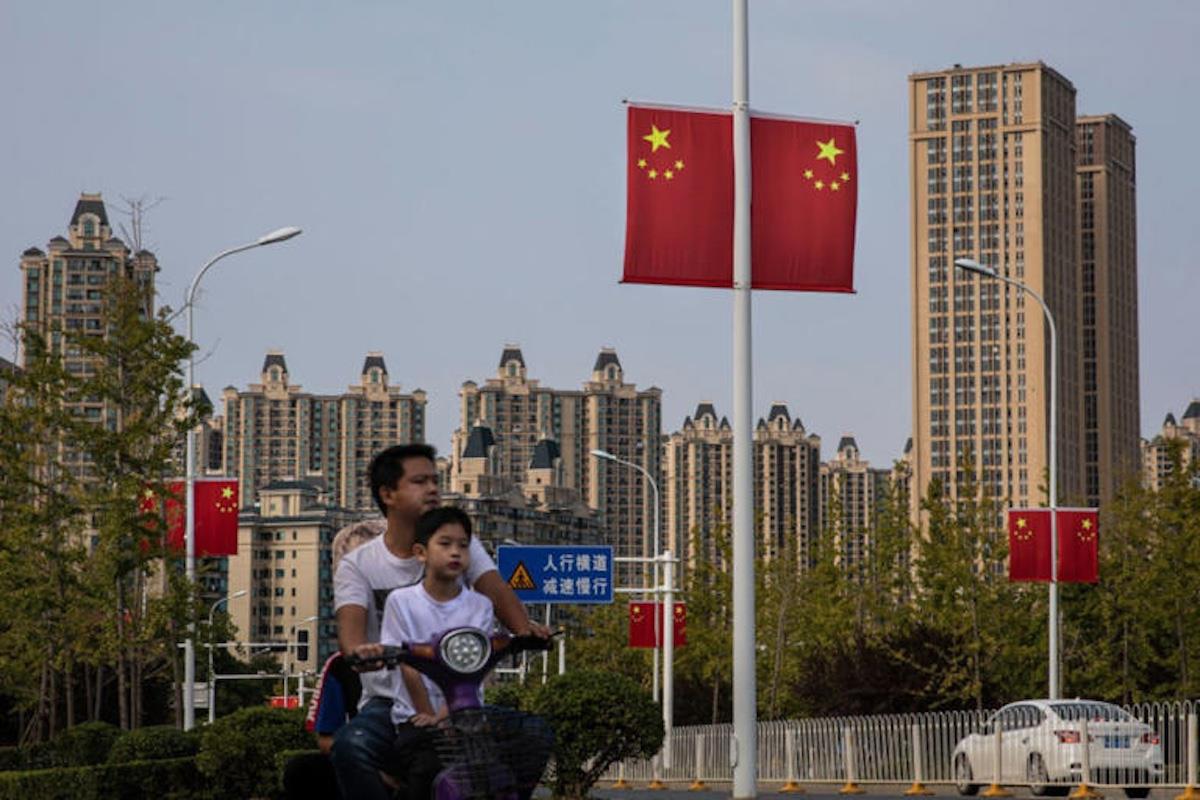
China Wakes, US Builds, Woke Wanes And Tariffs Tally
Two weeks ago I argued that China is suffering from a shortage of aggregate demand and that the solution is to have the central government A) bail out banks and local government financing vehicles, and B) use fiscal and monetary stimulus. Perhaps Xi Jinping reads my blog.
China is unleashing some more substantial
stimulus measures :
Chinese stocks immediately soared. Even more encouragingly (at least, if you want China to keep growing), Xi's government looks like it might bail out the Chinese banking system :
For the uninitiated,“injecting capital” means“giving banks money”. It means a bailout.
This is probably even more important than stimulus, since getting banks lending again is the key to a sustained recovery. China boosters have long held that Chinese banks' bad debts don't matter because banks and the state are one and the same - this is called the“unitary state” theory.
That theory is probably wrong. Chinese banks have their own incentives, and fear getting culled by the government if they fail. Injecting them with capital helps them gain the confidence to lend again, because it gives them a cushion against failure.
The final step in this process would be to bail out China's local government financing vehicles, which have become
incredibly important
to China's regional economies. But just bailing out the banks and doing some major fiscal and monetary stimulus should have a big effect in terms of shortening and ameliorating China's recession.
US economic policy has been shifting toward industrial policy. A number of commentators who oppose this shift have been quick to seize on any sign of problems as a reason to dismiss the whole enterprise. For example, in March of this year, Matt Cole and Chris Nicholson wrote an op-ed in The Hill with the bombastic title“DEI killed the CHIPS Act .”
Their single piece of evidence for this bold thesis was that TSMC's fab in Arizona was projected to have significant delays due to a dispute with local construction unions.
In fact, even before that dismissive op-ed came out, the labor dispute it referenced had already
been solved . And just a month after the op-ed came out, TSMC was officially allocated its CHIPS Act money, and suddenly declared that its Arizona project was
now
ahead
of schedule .
Now, less than six months later,
Tim Culpan reports
that TSMC's Arizona plant has started making some chips for Apple. The chip they're making is fairly advanced, and they're reportedly getting good yields:
Everyone who leaped at the chance to declare the CHIPS Act a failure at the first report of delays now has egg on their face.
Meanwhile, Biden's other big piece of industrial policy legislation - the Inflation Reduction Act - appears to be giving US solar manufacturing a big boost. Solar manufacturers are
ramping up production , and the US is getting the ability to build the pieces of the solar supply chain that it had previously outsourced entirely to China and other countries:

Source: Jesse Peltan
This is still small potatoes compared to what China can make, but it means that if a war breaks out, US deployment of solar power won't be cut off.
Note that both the successes in chips and solar are cases where the private sector made most of the investment itself, and the US government simply
prompted
that investment with subsidies.
This stands in
stark contrast
to
cases where
the US government promised to build things itself, and was stymied by its lack of state capacity and its own byzantine permitting process.
A big lesson here is that
Matt Yglesias is right , and the US government has willfully destroyed much of its state capacity since the 1970s. Therefore, the most effective industrial policy, at least right now, is for government to act as the spur for the private sector to invest its own money.
The even bigger lesson, though, is that industrial policy's knee-jerk naysayers need to be a little more circumspect and judicious, or else they'll keep looking silly when industrial policy succeeds. There are certainly problems and challenges and drawbacks associated with industrial policy, and we need smart, thoughtful critics who can identify those. People who simply pounce on any whiff of difficulty are unhelpful.
3. Tariff justificationsThe US government is becoming more hostile to Chinese imports all the time. Biden recently announced that
he'll limit the“de minimis” exemption
that allows Chinese companies like Temu and Shein to ship Americans small cheap packages without paying tariffs. And Biden's administration is
considering an outright ban
on Chinese components in any cars that are connected to the internet, to protect against possible sabotage.
Meanwhile, Trump is going around promising tariffs, tariffs, and
more tariffs
as the solution to a variety of economic ills (or just because
he really likes tariffs ). While this is far from the most important policy issue in the election, some people are talking about it.

Legal Disclaimer:
MENAFN provides the
information “as is” without warranty of any kind. We do not accept
any responsibility or liability for the accuracy, content, images,
videos, licenses, completeness, legality, or reliability of the information
contained in this article. If you have any complaints or copyright
issues related to this article, kindly contact the provider above.





















Comments
No comment